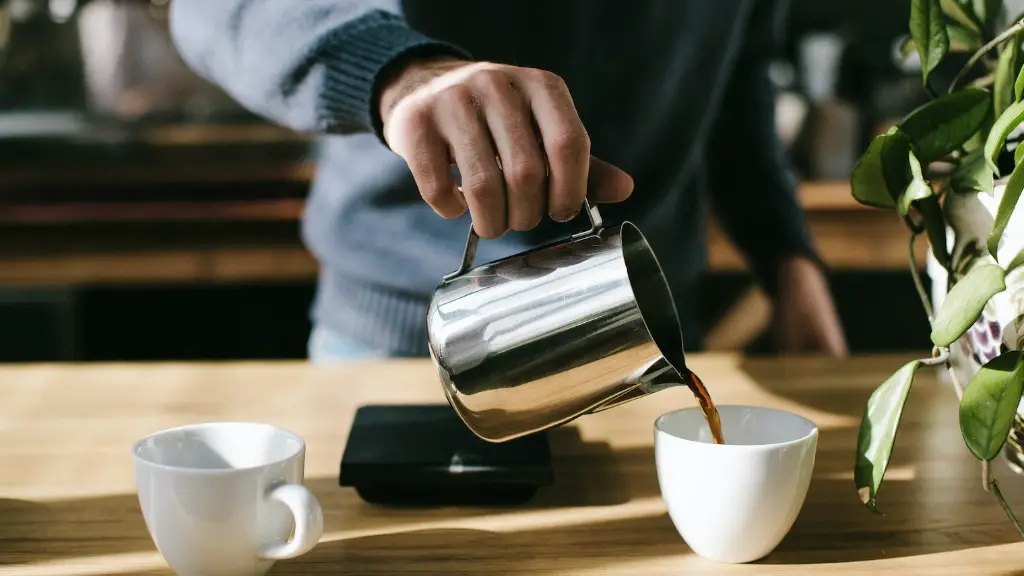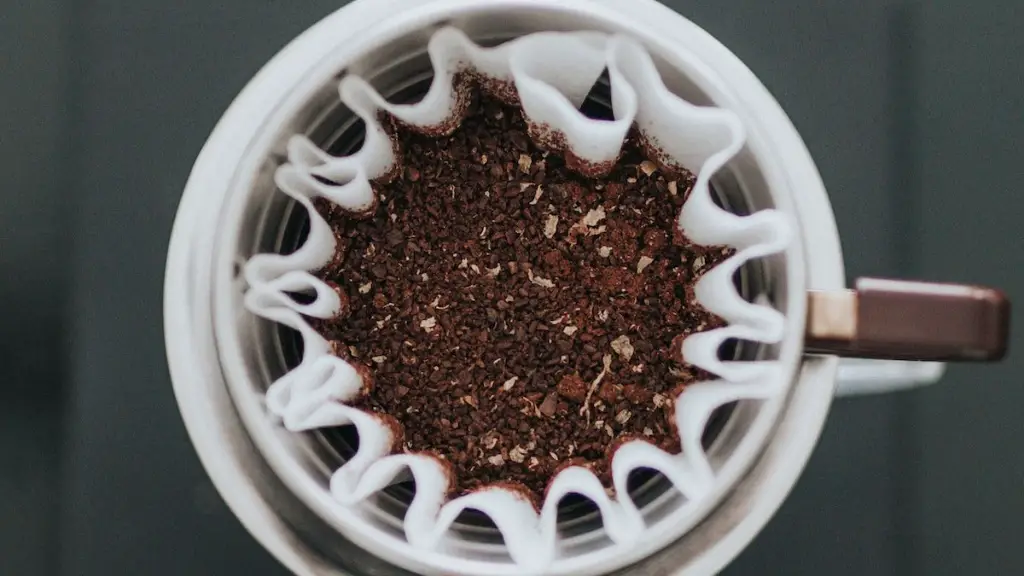In today’s world, coffee has become one of the most popular beverages, and is consumed by many people around the world. But when it comes to health and nutrition, is it as good as drinking water?
Coffee provides numerous health benefits. It can boost energy levels, help to improve mental alertness and keep you from feeling tired. The stimulant caffeine found in coffee has been linked to improved cognitive performance, increased alertness and improved mood. Coffee also contains a number of important nutrients, including magnesium and potassium, which can help to reduce the risk of some diseases.
However, it is important to remember that the health benefits of coffee depend on the amount you drink. The American Heart Association recommends limiting daily caffeine intake to 400 milligrams per day. Drinking too much coffee can lead to an increased risk of developing hypertension and heart problems, as well as uncomfortable side effects such as nervousness and insomnia.
In comparison, drinking water is a healthy and essential part of staying hydrated. Water helps to flush out toxins and regulate body temperature, as well as transport essential nutrients throughout the body. It can also help to reduce appetite, aid in digestion and improve overall energy levels.
So, the real answer to the question of whether coffee is better than water is that it depends on the individual. Everyone needs to be mindful of their own consumption and the potential risks associated with consuming too much coffee. For those looking for a healthful and hydrating beverage, water may be the best option. However, for those looking for a quick pick-me-up, a carefully-regulated cup of coffee can provide an excellent boost.
How Much Coffee Should be Consumed?
When it comes to health, the key is moderation. Moderation is important with all drinks, not just coffee. Many experts recommend a maximum of four cups of coffee per day. This should provide enough of the health benefits without over-consuming the caffeine.
It is also important to consider the quality of the coffee being consumed. High-quality coffee is naturally lower in caffeine as well as in bitter compounds and other toxins. Therefore, it is important to consider not only how much coffee is being consumed but also how high-quality it is.
What are the Alternatives to Coffee?
If you find yourself in need of a daily energy boost and you don’t want to consume too much caffeine, there are several alternatives you can consider. Herbal teas, such as green tea and chamomile, are low in caffeine and provide a number of healthful benefits. Or, for a non-caffeinated option, you can try smoothies, fruit juices and other natural drinks.
For those who prefer the taste of coffee and still want to cut back on caffeine, there are a variety of low-caffeine coffee options, such as decaf and coffee substitutes. These provide a great option for those looking for a healthier alternative to coffee.
What are the Health Benefits of Drinking Water?
Water is essential for many reasons. It helps to regulate body temperature, transport essential nutrients and flush out toxins. It can also help to reduce appetite and aid in digestion. Water is essential for health and it can help to reduce the risk of many diseases, such as kidney stones and diabetes.
Furthermore, drinking water helps to replace lost fluids in the body and can help to provide energy. Studies have also shown that drinking plenty of water can help to improve skin health and reduce signs of aging, as well as improve cognitive performance and reduce fatigue.
Can You Rehydrate with Coffee?
In short, no. While coffee does have some health benefits and replaced lost fluids, it is not as effective as water in terms of rehydration. Caffeinated drinks are actually diuretics, which can actually make you more dehydrated. Therefore, if you need to rehydrate, it is best to stick to water.
Furthermore, it is important to be aware of the hidden caffeine levels in many foods, such as energy drinks, chocolate, and some painkillers. Excessive caffeine can lead to increased levels of anxiety and insomnia, so be sure to keep track of how much caffeine you consume each day.
What are the Long-Term Health Benefits of Drinking Coffee?
Over time, coffee has been linked to a number of potential health benefits. Studies have found that coffee can reduce the risk of some diseases such as Parkinson’s and Alzheimer’s, as well as reduce the risk of some cancers such as bladder and colorectal cancer.
Coffee also helps to increase overall mental alertness and reduce fatigue. Studies have shown that coffee can improve exercise performance, increase energy levels and help to reduce the risk of type 2 diabetes. But, as mentioned, moderation is key when it comes to coffee consumption.
Are There Side Effects to Drinking Too Much Coffee?
While coffee can provide many health benefits, it is important to keep in mind that excessive consumption can negatively affect physical and mental health. When consumed in large amounts, caffeine can create an overstimulated state, causing nervousness, irritability and restlessness. Too much caffeine can also cause headaches, nausea, stomach aches, muscle tremors and high blood pressure.
In general, it is recommended to stay away from energy drinks, as these contain extremely high levels of caffeine, which can be dangerous for the body. Instead, it is important to consume caffeine in moderation, from natural sources such as coffee and tea.
What is the Bottom Line?
When it comes to drinking water versus drinking coffee, it is important to be aware of the potential risks and benefits associated with both. It is recommended to drink plenty of water throughout the day and limit caffeine intake to a safe level. However, for those who want to enjoy a cup of coffee, it is important to remember moderation, and to consider the quality of the coffee being consumed.




